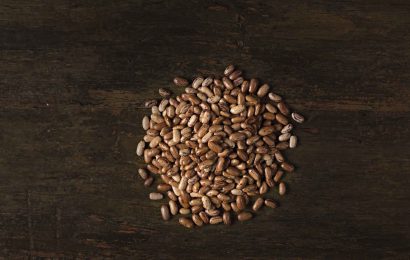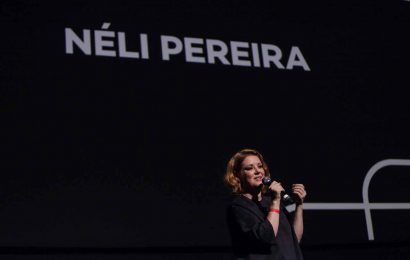In the classes, women from Casa Marta e Maria that suffered domestic violence learned to bake cakes, cookies and biscuits. The goal is to help with training, recovery of self-esteem and income generation
Leticia Rocha
Family conflicts have brought Lílian Cataldi, 38, from São Paulo, to the reception center Marta e Maria, in Belenzinho, a neighbourhood in the East side of São Paulo capital, three different times. The last one was motivated by unemployment and by the end of a relationship a year ago. “I know this is a temporary shelter and I am grateful to have the possibility to stand up when I fall, to have a chance to start over”.
Lílian is one among 20 women that were around the table paying attention to what the chef Thiago Andrade and the cook Karina Carvalho were doing. For three days, the duo from Instituto Brasil a Gosto engaged in teaching the group cookie recipes such as goiabinha, sequilho, polvilho biscuits,coconut cake and marble cake.
A iniciativa, batizada de Oficina Gastronômica, é fruto de uma parceria entre o Instituto Brasil a Gosto e o centro de acolhida, que hoje possui ‘80 ‘conviventes’ – entre mulheres em situação de risco e vulnerabilidade social e seus filhos; e visa ajudar na capacitação, recuperação de autoestima e geração de renda, tudo por meio da comida. “Tenho muita gratidão ao espaço e esse tipo de ação porque são coisas que nos dão motivação para levantar”, diz Lílian, que sonha encontrar um trabalho: “Antes de vir aqui, já deixei um currículo em um restaurante. Sempre que posso, quando a depressão não atrapalha, vendo trufas na rua para a vizinhança”, conta ela, que, em “um mês bom”, consegue ganhar 80 reais. O dinheiro ela poupa e, quando dá, cede aos mimos dos filhos Henrique, 6 anos, e Ingrid, 11, que vivem com ela, no abrigo. “No nosso dia a dia, temos exemplos de superação e vitória. A Maria é uma dessas guerreiras”, revela ela.
Maria (who prefers not to give full name for safety reasons), 58, is another student at the cooking workshops. One of the most dedicated: “I am very active and can’t stand still. I am already thinking about cooking and selling all of these recipes”. She has worked as a cook at Casa Marta e Maria for seven years. “I have a signed employment contract, which is something I’ve always wanted. I get emotional and shiver every time I think of that! I pay rent, I have my house again, (I am living and coexisting again) I feel alive again”, she says. “But I got here because I had lost everything and had to live on the streets! For 15 days I saw and lived the most distressing things in my entire life, but at the same time, it was there that I got the help that was crucial for me to change: another homeless woman told me about a shelter. After a while, I heard about Marta and Maria, moved here and got a job at a concert hall in the Vila Madalena neighbourhood. I used to cross the city everyday to work there, but had to hide my reality and my address”.
“Mari is a fighter and is also sort of a healer. With her work, she gives love to the ones who are vulnerable and in need of care, strength and motivation. She makes chocolate cakes, chicken pies and coxinhas like no other. Just like Maria, two other women are considered an example to follow inside the institution: Carla and Valdirene, who were also helped there once and now are employed and working in the kitchen”, says Roberta Gonçalves, social worker and educator.
These workshops happened from 17 to 19 of October at Cefopea (Center for professional and environmental education), a partner from Marta e Maria which form, with other five organizations, Reciclazaro – an association that has as a slogan the phrase “preserving nature, recycling lives, reducing violence” and that was founded 20 years ago by the priest José Carlos at Vila Romana neighbourhood, in São Paulo.



